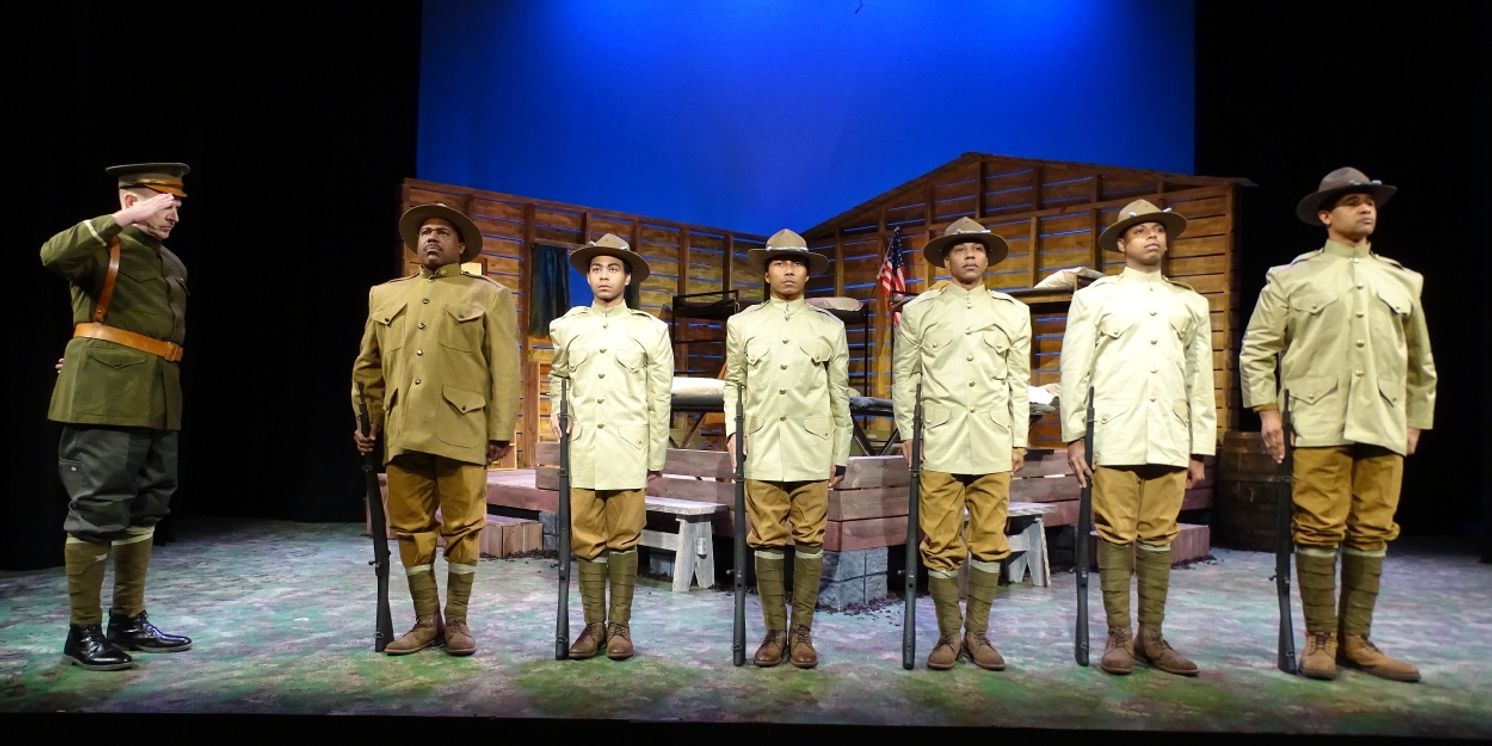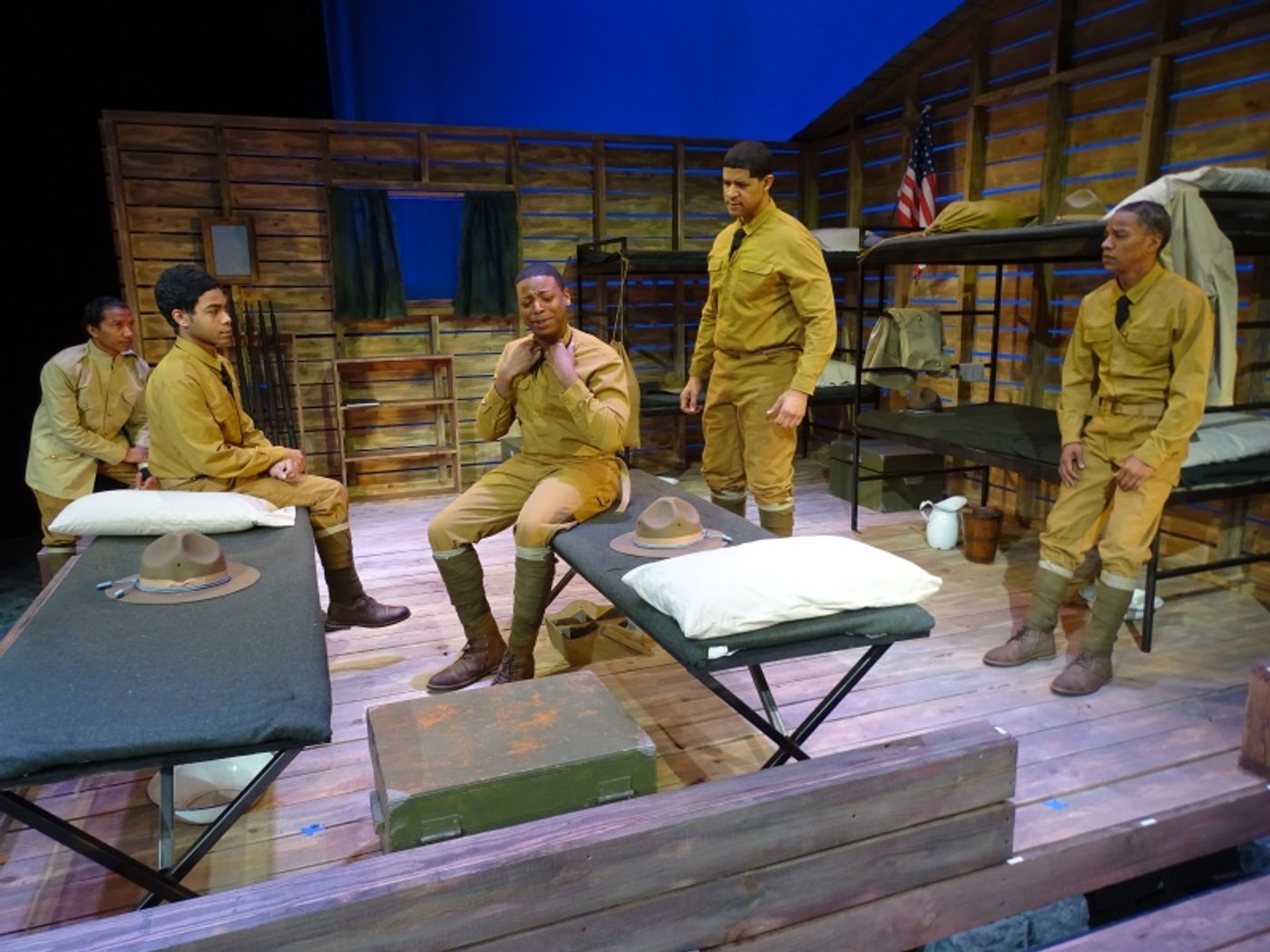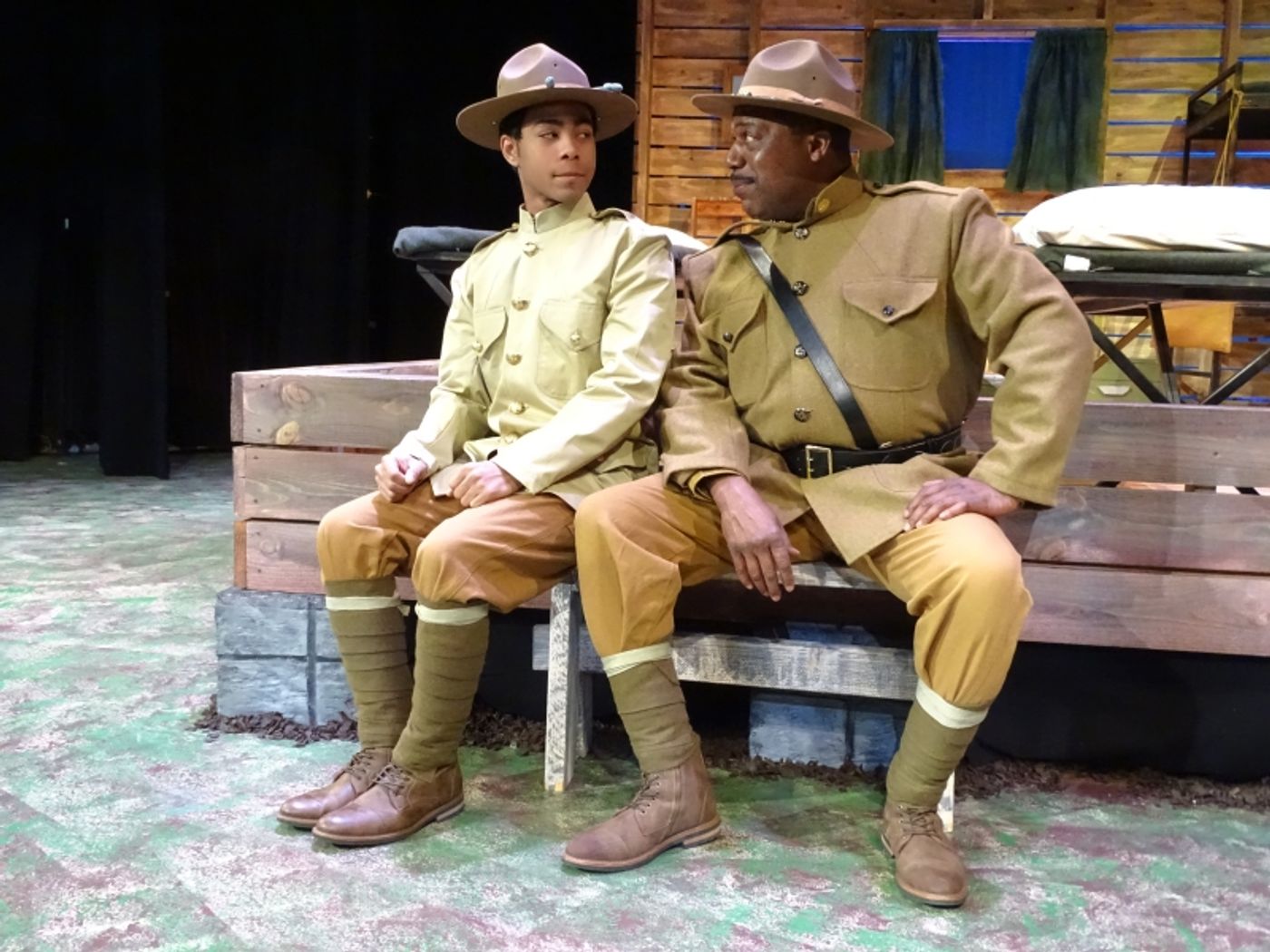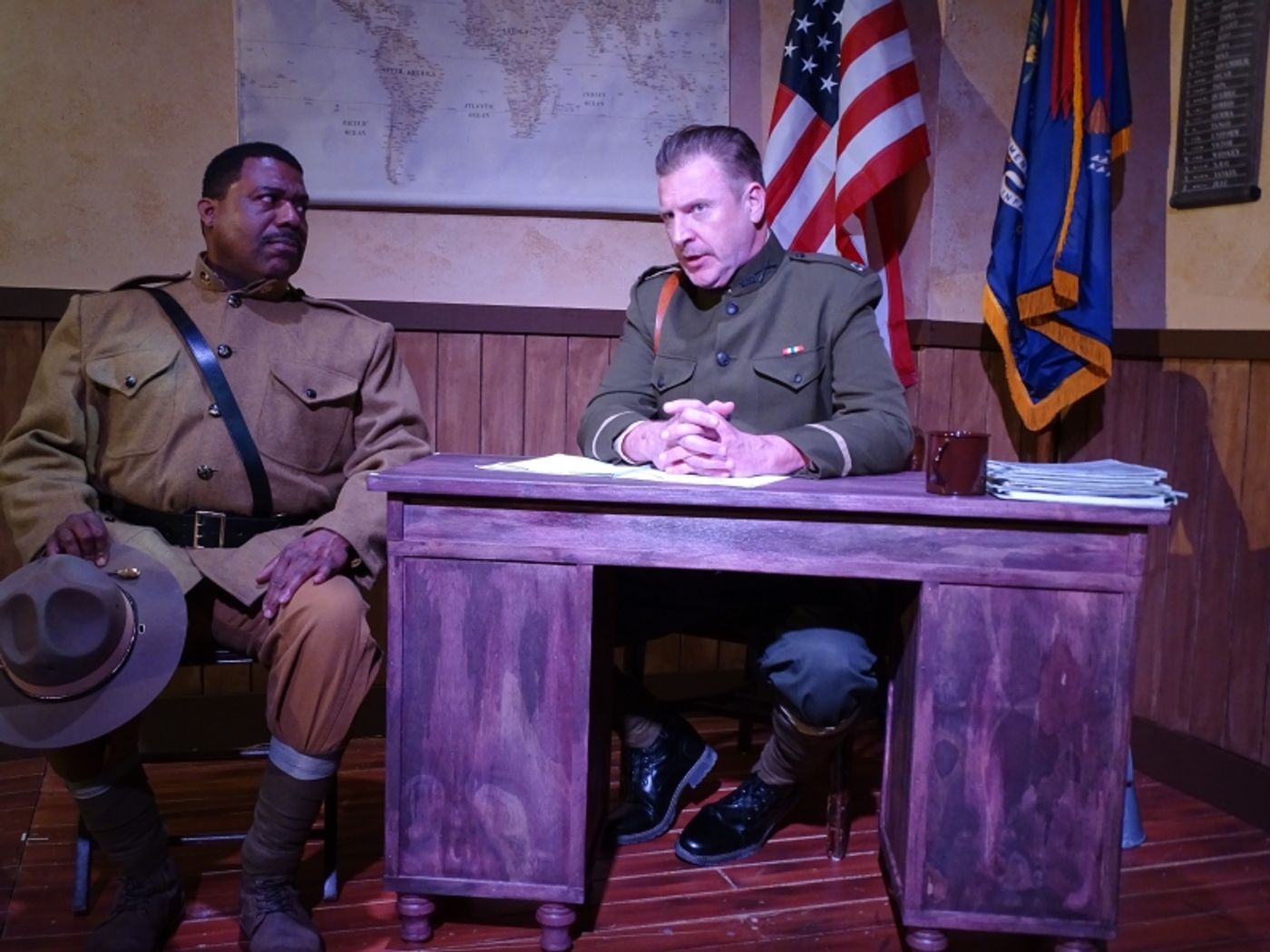Review: CAMP LOGAN at The Ensemble Theatre
This haunting production, based on real events, captures a powerful slice of history that remains deeply relevant today.

Written by playwright Celeste Bedford Walker, CAMP LOGAN recounts the real-life events that unfolded in Houston during World War I. In 1917, members of the highly decorated 24th Infantry Regiment were subjected to extreme Jim Crow oppression upon their arrival in the city. The tragic riot that ensued left dozens dead, including 17 Black soldiers who were later hanged for mutiny. As Walker poignantly states, “More than any other institution in America, the way the United States Army treats its soldiers and veterans is a barometer of its soul, and the CAMP LOGAN incident, like the George Floyd tragedy, exposes a frightening mindset that existed over one hundred years ago and still exists today.”
Part of The Ensemble Theatre’s 2024-2025 “Season of Change,” CAMP LOGAN is the third production of the season. This was my first experience with The Ensemble Theatre, and it will certainly not be my last. From the moment I entered the lobby, I was impressed by the quality of the theater itself, as well as its thoughtful execution of the production.
To call this play poignant is an understatement. It is profoundly affecting, and watching it feels uncomfortable—not because it is poorly executed, but because it is painfully truthful. The themes resonate as much today as they did over a century ago, underscoring the ongoing struggle for people's rights. This production lingers in your mind long after the final curtain, thanks to its brilliant acting, directing, and production.

The story centers around five soldiers, their sergeant, and his captain over the course of a few days in 1917. The regiment has just arrived in Houston and is preparing to deploy to France to fight in WWI. They face relentless hostility from both the white citizens of Houston and within their own ranks, embodied by the duplicitous Captain Zuelke, who outwardly offers platitudes while covertly undermining them at every turn. Tensions mount, culminating in a violent stand-off and eventual riot—tragic events rooted in history. A historical marker commemorates Camp Logan at the intersection of Arnot and Haskell Streets, on the east side of Memorial Park.
With a cast of just seven actors, there is no room for weak performances, and the ensemble of CAMP LOGAN rises to the challenge with remarkable depth and versatility. Jason Carmichael delivers a multifaceted performance as Sgt. McKinney, shifting seamlessly from a commanding drill sergeant to a man cowed by his own superior. Elia Adams, as Chales Hardin, is the newest recruit and deftly keeps up his youthful optimism throughout the production. Kristopher Adams shines as Robert Franciscus, a soldier promoted to MP and tasked with keeping his fellow soldiers in line. He pays a price and Adams navigates his character’s arc with precision and nuance.
Roc Living and Kendrick Brown bring humor and heart to their roles as long-serving soldiers Gweely Brown and Joe Moses. Living’s boisterous portrayal is memorable, while Brown accomplishes the difficult task of being cynical yet endearing. Tanner Thomas Ellis, as Jacques “Bugaloosa” Honore, gives a deeply touching performance, especially when revealing his character’s backstory. Finally, Foster Davis is chillingly effective as the villainous Captain Zuelke, embodying the systemic racism and cruelty that fuels the play’s conflict.

Walker’s thoughtful script is brought to life with care under the direction of Allie Woods, Jr., who ensures that each character’s story is authentically conveyed. Philip Graschel’s set design—focused on the soldiers’ bunkhouse—feels historically accurate and provides a dynamic space for the cast. Krystal Uchem’s costume design is understated yet effective, capturing the essence of the period while maintaining uniformity among the soldiers.
The technical elements of the production truly elevate it. Bryan Ealey’s lighting design masterfully transitions between warm camaraderie, tense confrontations, and the play’s most dramatic moments. Adrian Washington’s sound design, with its thrumming bass, amplifies the emotional intensity of key scenes.

The only drawback was occasional missed moments in the final scenes due to blocking and the location of my seat. It was disappointing to lose sight of certain characters during their pivotal moments. However, this minor issue did not detract from the overall impact of this extraordinary production.
CAMP LOGAN is a must-see, mature drama performed at a high-caliber venue. Remarkably, a play written 36 years ago, and set in 1917, remains strikingly relevant today. This is a testament to both the enduring power of Walker’s work and The Ensemble Theatre’s commitment to creating meaningful, thought-provoking art.
CAMP LOGAN runs until February 23rd at The Ensemble Theatre, located at 3535 Main Street in Midtown. Two paid parking lots are nearby. Founded in 1976 by the late George Hawkins, The Ensemble Theatre preserves African American artistic expression while enlightening, entertaining, and enriching a diverse community. It is the oldest and largest professional African American theater in the Southwest and one of the nation’s largest African American theaters with its own in-house Production Team. For tickets and more information, visit ensemblehouston.com.
Reader Reviews

Videos

